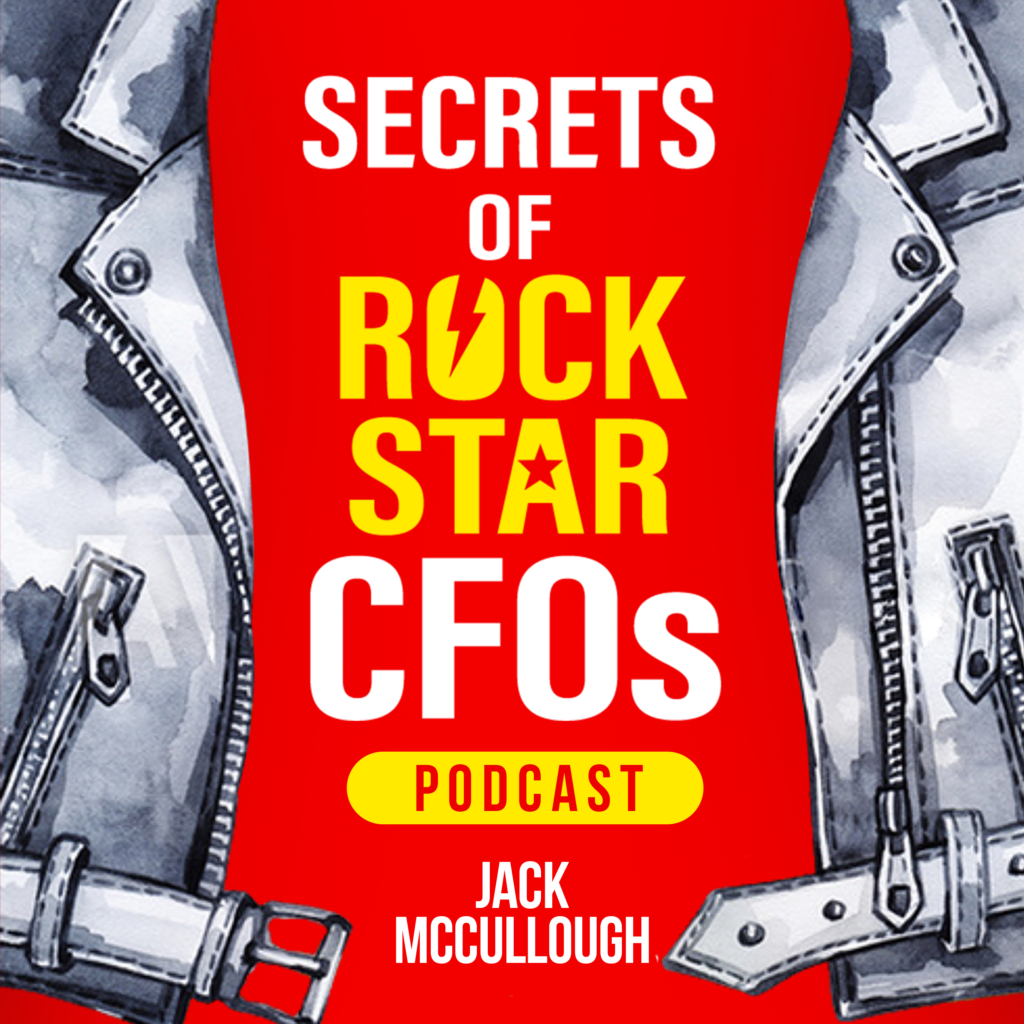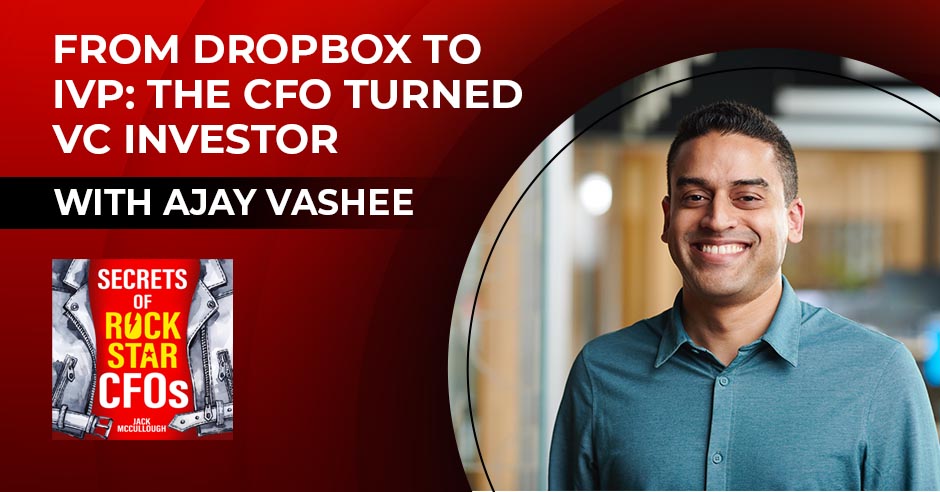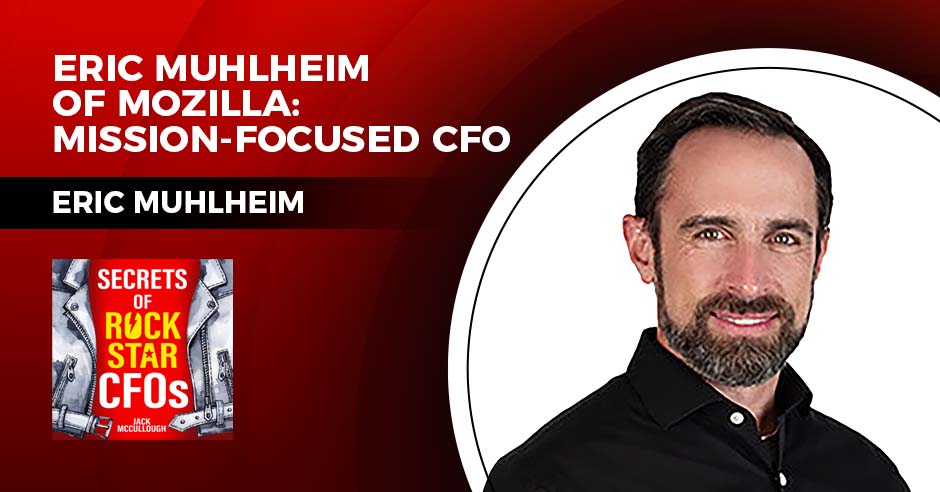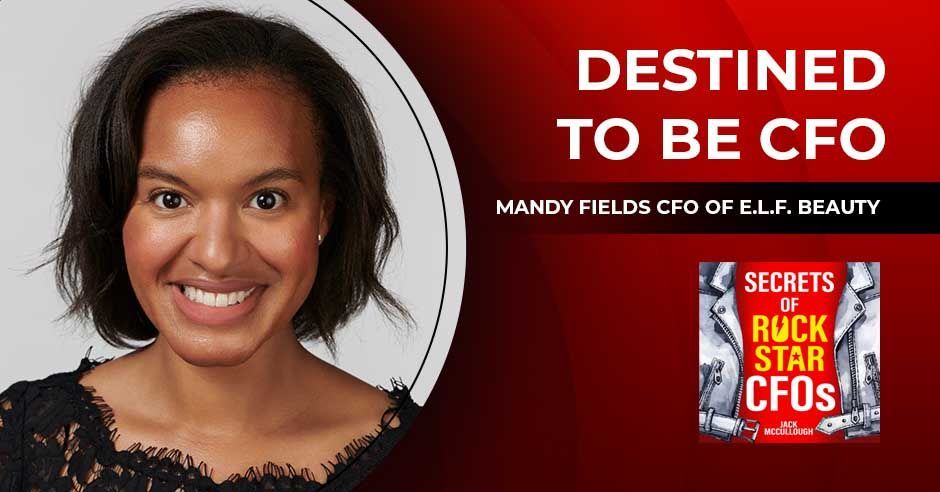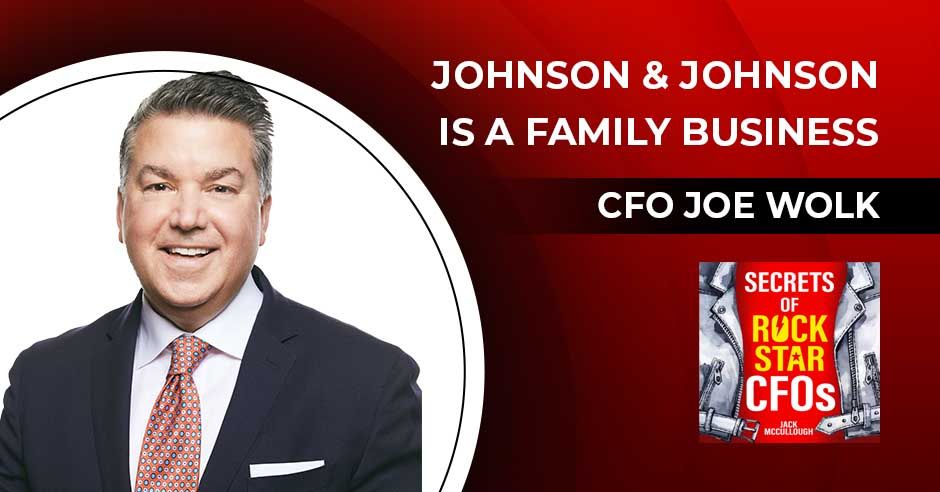Wetteny Joseph, executive vice president and chief financial officer of Zoetis, the world’s leading animal health company, has come a long way from his childhood in Haiti as the ninth of 10 kids. It certainly hasn’t been easy–he shares the kind of pep talk he sometimes gave himself as the only Black person in a room–but he values the challenges almost more than the successes: That’s how you “develop a new muscle and help develop an area that perhaps you need to grow in,” he tells our Jack McCullough.
In this podcast episode, Wetteny talks with Jack McCullough about his road to leadership, why he cares more about experiences than titles and his advice for the next generation of CFOs. Listen by clicking below. The Q&A, lightly edited and trimmed for clarity, follows.
—
Listen to the podcast here
I am excited about our guest. I am joined by Wetteny Joseph, who is the CFO of Zoetis. Wetteny, thanks for being here.
Jack, thank you very much for having me on here. I’m not sure I quite meet the criteria of a rockstar CFO but I’m looking forward to the conversation.
Humility is such a quality with you CFO types. I want to talk about your background. Before we get into that, Zoetis is a great company. It’s not one of the better-known companies but it’s a fascinating and important company. I thought maybe you could tell our audiences a little bit about that.
Interestingly, if someone walked a dog or had some milk in their coffee, then you’ve been touched by Zoetis already. Zoetis is the largest animal health company in the world. We are driven by innovation. We’re a purpose-driven company to nurture our world and humankind by advancing care for animals. We are innovating to solve our customers’ greatest needs both on the pet care side or the human-animal bond with more people having pets that are a part of their family.
That bond is something we want to continue to innovate in ways to keep them healthy. On the other hand, we are also on the livestock side, which is the production of animals for producers and farmers or manufacturing products to keep them healthy as well as we look to feed the world where we have 8 billion people on the planet, expected to go to 10 billion in about 30 years or so.
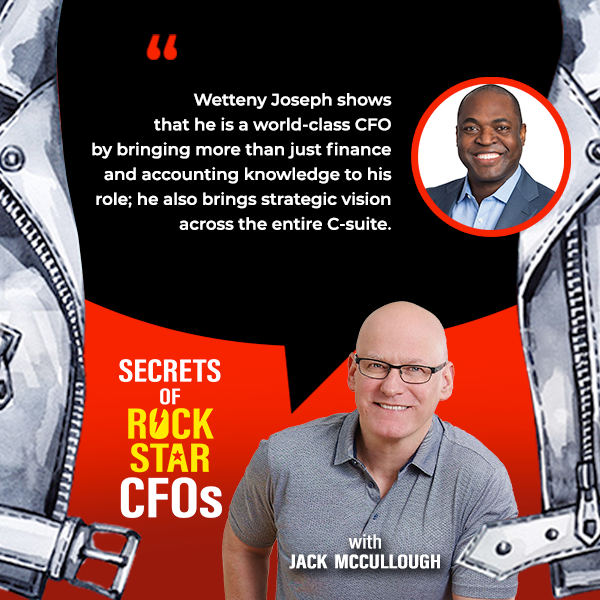
I’m old enough to remember when hitting 3 billion and then 5 billion were considered huge milestones. That’s fantastic. I want to talk about your background because it’s a little unusual. There probably aren’t a lot of CFOs of $80 billion companies who grew up in Haiti. I understand you’re 1 of 10 siblings.
I have nine brothers and sisters. I’m number nine out of 10.
You grew up in Haiti. What was that like? I read in an article in Fortune that you were learning English and accounting simultaneously. Is that fair to say?
I landed in the U.S. at the age of 12 not speaking any English at all. I got by saying yes or no, and I was just guessing. Someone would come up to me and start saying something and asking a question. I would start by saying yes. If their reaction was, “Really?” then I would change the answer to no. That’s how I got by the first few weeks but thankfully, I was able to learn the language relatively quickly.
By the time I entered high school, I had already gone into a finance program because I had such an interest in that area, which I’m sure we will get into in the conversation. Growing up in Haiti, particularly as a child, you don’t have the same level of responsibility. I feel for my parents for having to feed all of us. It’s one of the poorest places in the Western Hemisphere. We had our hardships for sure but we also had fun as kids playing around and enjoying the tropical climate atmosphere that is in Haiti.
I grew up with two sisters. I was adopted. There are two sisters in my adoptive family but I have nine brothers and sisters outside of the original two who I grew up with. I’ve always been jealous of people with large families but on the other hand, I was the only boy. I was quite spoiled as a child. It worked out pretty well. I have a question. You have nine brothers and sisters. Do you know all their birthdays?
No, if I’m honest. We have this thing where two of my brothers and I remind each other. I’ll remind them and say, “It’s Monique’s birthday. Make sure you call her.” They will do the same. I still struggle with those sometimes.
You’re naming your nephews and nieces and stuff like that.
I have over 30 nephews and nieces at this point if I include the ones that have their kids.
That’s a lot of nephews and nieces. Good for you. I would love to talk a little bit about your career. You started your career at PwC. Perhaps it was PwC back in the day. You had a terrific career growing at Home Depot in the home improvement sector, and then you moved over to life science. I would love to talk a little about that journey because it’s such a dramatic switch between industries.
When I joined PwC, it was a couple of years before the Coopers merger. My number one objective back then was to get as much experience as possible. I would have been the person volunteering for the toughest clients during the summers when things would slow down a little bit. Busy season starts in January. I would be the one saying, “I’ll go anywhere as long as there’s a project or something that I can get experience from that I would otherwise have to wait a long time to get that experience locally.”
For the first four or five years in the firm, I didn’t spend a summer in South Florida, which is where I was based at the time. I was always somewhere else. I spent a summer in Boston working on some clients. I spent a summer in Atlanta and the Baltimore, Maryland, area. That was helpful in terms of getting a more rounded experience and seeing more industries, which is where my interest in different industries started.
Once I left the firm, I went to a company that was called Hughes Supply. It was later bought by Home Depot and became Home Depot Supply. That company is wholesale distribution. It’s not on the retail side of the Home Depot business. There, you have thin margins. Handling cashflow, sensitivity is heightened. It helped me to appreciate that a lot more but the more instrumental thing that happened during those years was that there was a CFO that was hired on the same day that I joined the company. We started in the company on the same day.
He was extremely experienced. He took a number of folks and gave us interesting assignments on top of our normal day jobs to do that were critical needs for the finance function. I was fortunate enough to be one of those. It gave me a lot more exposure to him. Probably the first time that I had the thought of, “I would like to be a CFO someday,” was watching him work and learning from him. He gave me some stretch assignments. Without those, I probably wouldn’t be sitting here and having this conversation with you. That was instrumental as well.
I always had an interest in life sciences. The purpose and the mission of those companies in terms of what we do, both on the human side and now on the animal health side, are things that I can attach and identify with. I moved to New Jersey back in 2008 and joined a company that does pharma services doing manufacturing and drug development work for a wide variety of companies, both large and small biotechs across the industry and the globe. That gave me a lot of exposure to what’s in the drug development pipeline and how companies are going about those pursuits. That was also very fascinating. That was before coming to Zoetis.
You mentioned this mentor who made a career-altering impact on you, and that’s fantastic, but now that you are the CFO, have you taken on the role of mentoring some up-and-coming professionals?
He wasn’t the only one. We could probably fill this whole segment if I were to talk about all the folks who had an instrumental impact on me, whether they even had stretch assignments as mentors or sponsors is equally arguably maybe more important. I had a number of sponsors. You can pick your mentors. There are folks who come to me, and I don’t think I’ve ever turned down someone who asked me to mentor them in some capacity, whether it’s an official capacity, formal or informal.
I do take every opportunity to do that. We don’t get to pick our sponsors many times but we can create them in terms of how we go about expressing our intentions and what our aspirations are. When you get an opportunity to execute something and give it all you’ve got, then you’re creating sponsors who have confidence in you and who give you opportunities and speak about you when you’re not in the room.
I’ve had a number of sponsors. I would probably put the CEO of the former company I was with prior to Zoetis in the category of a sponsor. He put me in a number of different positions, including running a business, which makes me a better CFO than I would be otherwise. A number of mentors as well as sponsors have come across and have helped me get here.
It’s interesting because when I did the research for my book, Secrets of Rockstar CFOs, for which this show is named, I interviewed probably 40 or so CFOs, and every one of them expressed the importance of having a mentor at some point in their career and then being a mentor. You are proof of that as well in both directions.
I take a fairly broad definition of mentors. Your peers can be mentors to you as well. I’ve had a number of those over the years, and I still do now. That can come in a lot of different shapes and sizes up and down the stack in terms of looking at the organizational charts but then again, sponsors are critical as well.
I have a Gen Z mentor. It’s one of those reverse mentor types of relationships. We mentor each other, and she gives me perspective on the next generation. Those are the CFOs in 10 or 12 years. Hopefully, she gets some wisdom from my experiences as well. Anybody can be a mentor if you want to. I want to ask. You are one of the few Black CFOs in the Fortune 500. I would like to hear a little bit about that journey, what it was like, and how your experiences can help others.
I reflect on this question and think about when I first started with the firm. Growing up, you don’t see people who look like you in these positions. There are not many of them anyway. Now, there are only a couple of handfuls of Black CFOs across the Fortune 500. It’s underrepresented for sure. Coming up, I remember going into major clients, meeting with CFOs or senior members of the finance organizations, and thinking about what are they thinking when I walk into the room.
I remember almost giving myself a pep talk because these positions were not given out for free. It took quite a bit to get even to that point in my career. I had to step back, think about it, and say, “If someone is thinking, ‘Do you belong here or not?’ and that sort of thing, let that be their problem. It took a lot of hard work for you to get here. Focus on what you’re here to deliver.”
That was a threshold I had to get through. Whether it’s from a racial perspective, gender or different backgrounds, those who are underrepresented can sometimes be in their heads, not having seen folks who look like them in terms of coming up. That was one threshold that I had to get through. The other one is over my career. We talked a little bit about sponsors and mentors. The number of times I’ve had someone tap me on the shoulder and say, “I want you to do X.”
I was always ambitious, and I sought experiences. Titles can come and go. Experiences are going to stay with you for the rest of your career and the rest of your life perhaps. I always valued experience a lot more than titles but though I was working toward something I aspired to, when the time came, and someone tapped me on the shoulder and said, “Do this,” I never felt I was quite ready. I wanted to go back to that point because I do think sponsors can be instrumental in terms of seeing more potential in you than sometimes you see in yourself.
That’s an element. You can make this argument for virtually any leadership position. As a CFO, I take the mindset of replacing myself every two to three years. It doesn’t mean I’m changing positions necessarily, leaving the company or anything like that but I do think, whatever it is, that I’m personally responsible to make sure that I engage to get done. Someone on my team or individuals on my team can do that within the next two to three years. That means I have to develop a pipeline. That pipeline should also be very diverse in terms of background, the way they think, gender and race, which is something that I’m intentional about in terms of how I run my teams.
Corporate America talks a lot about the importance of diversity, equity and inclusion both from the strategic benefit it brings and also simply, it’s the right thing to do but a lot of us still struggle with it. What do you think we can do as business leaders to ensure that the next generation of Black financial leaders achieves its potential?
It’s a responsibility that we have to make sure that we’re building a pipeline and are thinking about the growth and sometimes more complexity that’s coming in the business across the landscape. The world is a lot more dynamic. We wake up every day with a different change that’s happening that has an impact and implications on the business. As leaders, we have to make sure that we’re developing the next generation of talent as well. That’s the fundamental requirement.
It’s being intentional about making sure. If you truly believe that a more diverse leadership team is going to be more productive and drive better performance, then you have to be intentional about making sure that you have a broad slate of individuals if you see opportunities and open positions that you’re trying to fill or new opportunities in terms of tackling a challenge.
One of my prior mentors/sponsors identified individuals within the finance function who could tackle the top six or seven challenges that the business was facing. By doing so and making sure you have a diverse set of individuals that are going after those, then you’re developing a diverse set of folks as well, which is why I’m sitting here. I do think being intentional about it is what to do but the primary mandate is to develop a pipeline.
I want to change up a little bit. Can you walk us through a particularly challenging moment in your career, how you tackled it and what some of the issues you faced were?
I’ve had many. That’s another piece that could take the entire segment. I happen to value the more challenging moments or the ones where I say, “If I could go back, I would probably do this differently.” I value those perhaps more than the ones that were knock-it-out-of-the-park successes because the latter tends to leverage the strength that we already have whereas the former tends to develop a new muscle and help develop an area that perhaps you need to grow in. That’s an area of growth.
One of the immediate ones that came to mind was having an opportunity to run a very major project initiative that was on top of what I would call my normal day job. I’m always looking to stretch others as I’ve been stretched to help them develop. In this particular instance, I stretched someone into a position where it was pretty obvious that they were not climbing to it despite any help. I was providing guidance and support. It took too long to do something about it.
It doesn’t mean that you don’t give stretch assignments to individuals. You want to do that and make sure you have the capacity as well to help them develop and grow, not just, “Let’s see how you do,” but at the same time, you also want to make sure that you don’t hesitate on people’s moves when you see the need. That’s a lesson that I’ve learned along the way.
This might be an obvious question because you described Zoetis so passionately but when you had the opportunity, what is it that attracted you to the role?
Zoetis is a purpose-driven company. Not only the purpose that I shared earlier but our core beliefs in terms of how we operate form the basis for our culture as an organization. We continue to innovate and lead animal health in terms of driving better health for animals across the spectrum and the globe. The thing that I admired about Zoetis, first of all, is how it got to be in its position, and it’s through innovation, number one. The other one is this: We are engaged in two broad areas. It’s on the pet care side and then on the livestock side. The human-animal bond is something that people around the world hold near and dear. Animals have become part of the family as well.
On the livestock side, this is where my background connects with our mission and our purpose as a company. I grew up in Haiti. Firsthand, I know what it’s like to go hungry and what it’s like to deal with malnourishment as well. Here’s a company whose very purpose is to help feed the world and provide quality animal protein to feed the world, the 8 billion people walking the planet, and the 10 billion that’s to come. That’s something that I can identify with given my background as well.
You encouraged the finance team to develop customer appreciation, and it’s embedded in the culture that you’re trying to create at your firm. You are passionate about that and very committed to it but tell us a little about that. What’s the relationship like between finance, sales and marketing?
I’ve always had this curiosity about business in general. It starts with, “Why would a customer choose this company’s products or services versus someone else’s? What is it that the customer values in that? What are the competitors? What are they doing? What are the suppliers that the company relies on?” There’s that curiosity, even back in high school when I still had a very heavy accent at the time and I was still learning how to speak English properly. I also was enrolled in a program called the Academy of Finance. I was taking accounting classes and finance classes in my junior year in high school and so on.
That curiosity is something that has served me well because it means that you are always looking across the spectrum, not just in finance or the specific department of function that you serve but you’re also looking from the outside in terms of the surroundings of the business and the company. I try to stress that across the finance function. I take every opportunity to go and meet with customers to try to understand their broader world so that I can better appreciate where our services and our products fit into that world and how we can better serve them in terms of how we bring our products to them, the innovation that we go after, and so forth.
I always bring those stories back to the teams internally. It’s bringing the customer to them. For example, finance may look at pricing. How do we understand how a product should be priced if we don’t fully understand what the value of that product is from the eyes of the customer? That is the ultimate measure. I stress that with our teams and continue to encourage us to do that.
The other thing that I do is when I join a company and meet with my peers, I tell them, “I’m in perpetual learning mode.” I want to make sure that my intentions are known and that I’m going to ask a lot of questions. It’s from that curiosity, so that I can better serve them and better help them, and we collectively can lead the company better. That breaks down any wall that might otherwise be.
I don’t have any data about it, but the quality that separates successful executives to me is not smarts because there are a lot of smart people out there. It is the intellectual curiosity. It’s the always-be-in-learning type of mode. It sounds like you’ve established a good relationship with sales and marketing. I don’t know if you ever saw a TV show called “Fawlty Towers.”
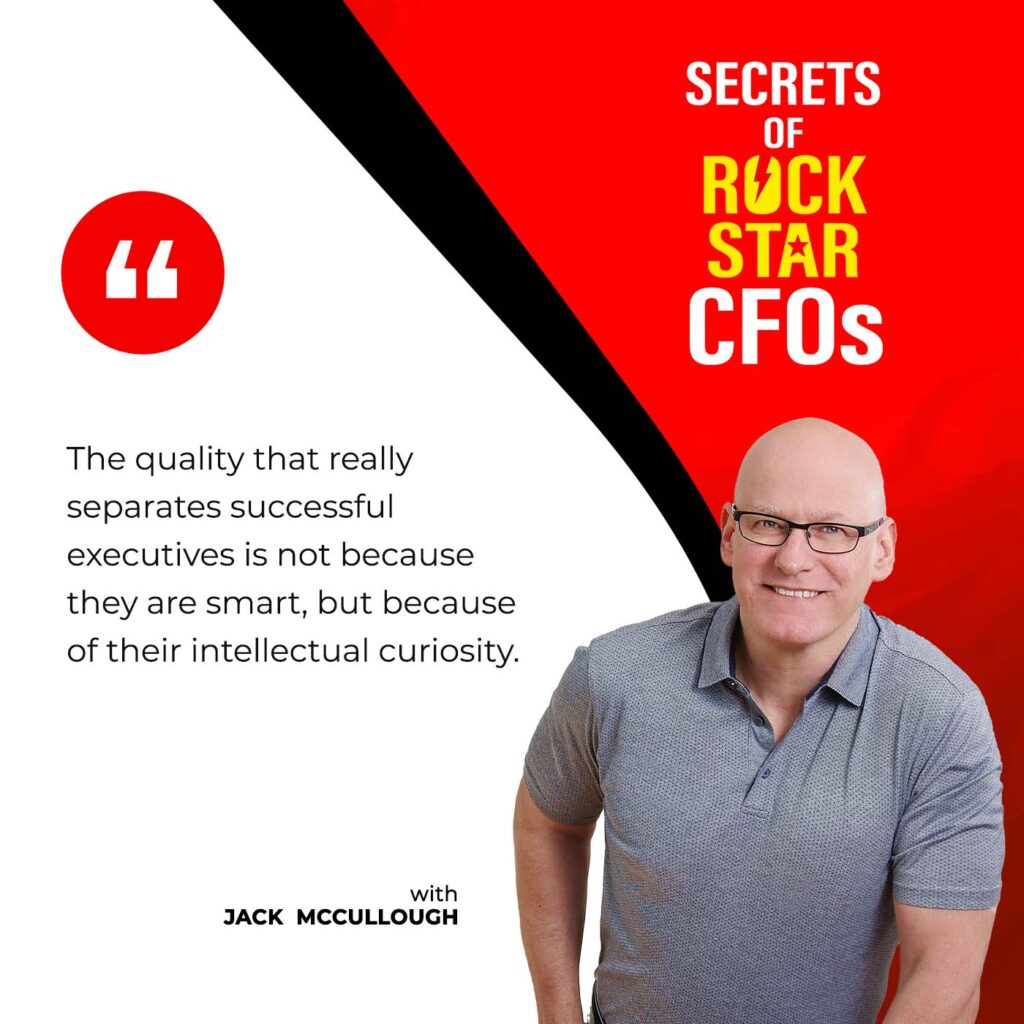
I never saw it.
It’s the people who created Monty Python. It was their TV show. They ran a hotel. One of the famous lines they used is this: They were managing a hotel, and they said, “This would be a great hotel if not for the customers.” I worked with a guy who said something almost identical to that. It’s the same sentiment. I thought he was quoting “Fawlty Towers,” and I laughed but he was serious. He thought it would be a great company without the customers. I was like, “What mindset is that?” It’s good for you to encourage otherwise.
Early in my career, I don’t want to say finance and marketing were adversarial but there was always a little bit of it. They weren’t fully collaborative. The first CFO I worked for always called marketing arts and crafts. I was 19 years old. It was funny at the time. As I look back, that’s not very helpful but in his defense, they called us bean counters. I never sensed he was kidding or trying to be funny by calling them that. You’ve created a culture where everyone has an important role. If the role wasn’t important, what is it doing here at all?
I’ve come to appreciate that the further I am in my career, not only the purpose that they serve and how all the pieces have to come together. Our brand and what that means help us also not just with our customers. It helps us with being able to attract and retain talent. It’s a critical role that all these functions play. I wanted to go back for a second on this notion of the customer and why I want to make sure that the finance function is more connected to the customer, understand that, and bring it back to the work that we do.
I had an opportunity to run a business. I was in various finance roles prior to that, and then I became CFO after that. One of the big lessons that I learned was this: I remember we had this project management function in the business. I was leading finance for that particular division prior to this. I always questioned why we needed as many project managers as we did. It wasn’t a profit center although we charged for it. There’s not enough to turn it into a profit venture although the overall business was very profitable.
I became president of that business. I had the opportunity to meet with a lot of customers over a relatively short period. As I reflected on those meetings with those customers, what I found was the customer was changing and becoming a lot more of these biotechs, not just the large pharma that had ample departments, functions and experiences in certain aspects of it but smaller companies and biotechs that were focused on the science. The logistics of running clinical trials and the project managers that they needed didn’t have that skillset per se. They’re relying more on us and not less. The value we brought to those customers was far greater than some of the large pharma customers.
I came back after all those meetings with those customers and doubled the number of project managers that we had in the business, having questioned why we had as many as we did sitting in the finance seat. We charged a lot more for their services because of the value that I saw that we were bringing. It turned into a profit center and helped us drive even better growth for the overall business. This is another example that underscores the importance of understanding from the perspective of the customer.
It’s what it’s all about. Early in my career, the traditional CFO role wasn’t strategic. Often the best accountant in the company would become the CFO. The role focused on financial reporting, compliance, cost containment and things like that. Over time, it’s gotten to the point where it’s now truly a strategic role. I would argue that it’s probably the most cross-functional role in most companies. The CEO is up there and maybe even the chief human resources person as well. It’s in the top three.
You value the relationships you have with the president of the company, the board and the entire C-Suite and the idea of being strategic and growing the business. I’m curious. It sounds like it came naturally but you were helped by that experience of running a business before becoming a CFO because you weren’t a CFO, and then running a business. You ran the business and then became a CFO. That must have been extremely helpful to broaden the perspective.
It was super helpful. Not only the example that I shared earlier but I came to appreciate a lot more the importance of when you set a strategy and identify places where you want to deploy capital and invest. In this particular case, it was a service business. It was human capital that was going into driving our growth and how we serve our customers.
What I appreciated more after coming into the seat of running the business was there were times when we would have a plan, set out to hire people into certain positions and fall behind that. That meant that the expenses were also coming in behind, and it was benefiting the P&L. I saw the benefit of that from the finance seat but coming in to run the business, what I saw was that I was delaying a critical strategic step we wanted to take. While it was beneficial in terms of what the spend levels were on the P&L, it was delaying our ability to get more on the front foot in terms of driving growth. I could see that and appreciate that a lot more having been in that seat than I could have in the finance seat for sure.
It probably makes all the difference. There are some large companies that intentionally rotate and have a finance person work in marketing for six months. It’s not that they’re going to bring a lot of value to marketing necessarily but they’re trying to broaden that perspective and have them appreciate what goes on in marketing. They identify people with high potential for future C-Suite members and whatnot. It’s great that you had that opportunity.
I want to key in on something you said a moment ago. In the role that we play, we continue to wear that stewardship hat. We are protecting the company’s assets, making sure that the controls are in place, executing appropriately and so on. That’s a very important role that we continue to play. We can also be stewards of growth and driving execution. If we’re rightfully engaged in setting out what the strategy is because we’re so cross-functional, we’re in a prime position to make the introduction between strategy and execution. The finance is right at the center of that to be able to drive the execution to bring that strategy to reality.
It’s so valuable because unless you’re the one in 100 companies where the CEO is a former CFO, you are the only one who’s both a financial expert and has strategic vision across the entire C-Suite. It makes the CFO role so critical. You wouldn’t want to invest in a company that didn’t have a world-class CFO running the financial operations and adding more than finance and accounting. That’s what you bring.
That’s why I wear three hats or whatever terminology we want to use. On the one hand, I’m leading a finance function. I have to set the goals and objectives of the function, look at where our resources are allocated, and make sure that we can play the stewardship role of protecting the company’s assets, reporting accurately, and so on but we also make sure we have the right seat at the table in terms of engaging with the business and partnering with the business.
I call that one hat, and then I wear a second hat. I call it being the CFO. That’s where I’m engaging with investors, making capital allocation decisions, engaging with the board of directors and participating in the setup of the strategy for the company. I call that “being the CFO” but then there’s a third hat that fits in with what you were talking about.
We’re able to see across the organization in the way that we are and human resources and execute quality, operations and manufacturing across the board. We are in a prime position to bring those together from an execution standpoint and drive that rigor as well. That’s a third hat that might feel like a COO. I don’t spend my time worrying about titles. Titles come and go. Experiences are what matter. That third hat is where you can engage as a finance function as a CFO to bring it all together.
Despite your humility, I would put you in that category. I’m wondering if you can give any advice to the next generation of CFOs and things that they should start to learn and focus on that will help them get the role and then flourish once they have the opportunity.
There are a lot of different pathways that an individual could go through to land in a CFO seat at some point. There’s no hard and fast rule or exact path but there are a couple of things that I would share. It’s back to what I said earlier. Make sure you understand the business regardless of what role you play, what position you are in, and what department you are in. Try to understand the company as broadly as possible as well as from the outside in and from the perspective of the customers, suppliers and competitors. That’s the first thing.
Be infinitely curious about the business, how it goes about meeting its customers’ needs, why customers value it and how it competes for the customers’ needs versus necessarily against someone else’s. That’s important to appreciate and understand. The second thing I would say is to be flexible, agile or mobile in terms of what positions and experiences you get to have. Have as broad and as deep of an experience set as you can in the business.

Maybe the last one is to set aggressive goals for yourself. Be aspirational but also be patient in terms of how you get there. There might be a lot of different pathways or opportunities that come that give you a chance to experience something. I didn’t necessarily set out to run a business, for example, but the opportunity came. Although initially, I said, “I don’t think I’m ready for that,” I did take on the opportunity, and it has made me a better CFO. The pathways can be very varied and not necessarily hard and fast. Be patient but also at the same time, set aspirational goals for yourself.
That’s great advice. We have a mentorship program. I’m going to share that with the next generation of leaders. I want to close on a personal note. A little birdie has shared with me that you are an accomplished chef. I don’t know if they said chef or cook. In particular, you like creating some of the traditional Haitian recipes that you grew up with. Tell us a little about any particular specialties you have and how you got into them.
I probably wouldn’t put myself in the category of an accomplished chef but I do enjoy cooking. It’s one of those de-stressors for me. In particular, if I can make something that I don’t need a recipe to follow, and I’m not measuring anything or I’m simply throwing things in, that is a lot more relaxing for me in the end. I do tend to make a number of dishes, and some of them are traditional Haitian dishes. Every New Year, I make this Haitian soup. It’s a tradition that I grew up with.
If you’re a little kid in Haiti on New Year’s Day, you will see a bunch of other kids carrying these little containers back and forth between houses. It’s because everyone makes a big pot of this soup. They want to share it with family and friends so everyone can taste each other’s soup and critique it. It’s a tradition that I carry here. I’ve made it and shared it with neighbors of mine. It takes days to prepare for it because I’m picking every single ingredient. I’m seasoning the meat ahead of time and going through the whole process. It’s a pretty large vat. Getting the flavor right takes a lot of effort and energy but I enjoy it.
It’s great to have an outlook like that. It was interesting because you mentioned you don’t like to follow a list of ingredients. You do it intuitively and freelance. I was thinking as you were telling me that this is a man who started his career in public accounting. Your professional life at least at one point was probably all about following a prescribed path, a procedure and things like that but you have that wall in between the two.
It’s one of the few places where I can be creative. It helps balance things out a little bit from the accountant who’s very structured and so on to be in the kitchen and throw things in.
This has been a lot of fun. I appreciate you taking the time to do it. You have an important job, and you’re a very busy man. Thanks for your time. I’m also excited to announce that Wetteny will be the keynote speaker at our conference. The registration is not open or anything like that but hopefully, we will see each other between now and then. In the worst case, we will see you in Boston at what should be a fantastic event.
I’m looking forward to it. This has been my absolute pleasure. Thanks again for having me.

